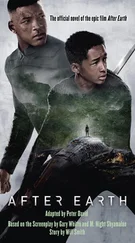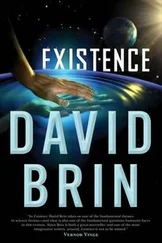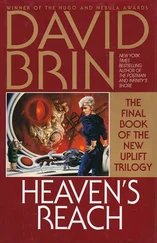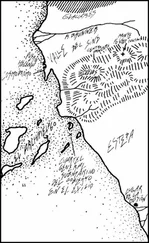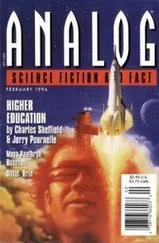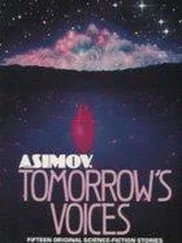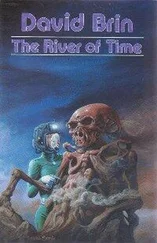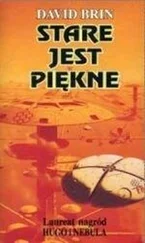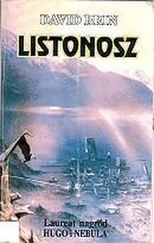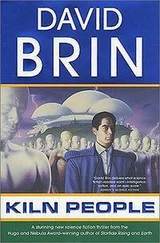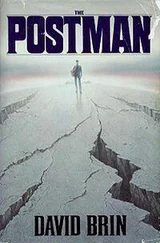The scene reminded Alex of a time in childhood, when his grandmother had taken him to Wales to watch the turning of the autumn leaves. Then, as now, it had struck him just how temporary everything seemed… the foliage, the drifting clouds, the patient mountains… the world.
“You know,” George Hutton said slowly, still contemplating the peaceful view outside, “back when the American and Russian empires used to face each other at the brink of nuclear war, this was where people in the Northern Hemisphere dreamed about fleeing to. Were you aware of that, Lustig? Every time there was a crisis, airlines suddenly overbooked with “vacation” trips to New Zealand. People must have thought this the ideal spot to ride out a holocaust.
“And that didn’t change with the Rio Treaties, did it? Big War went away, but then came the cancer plague, greenhouse heat, spreading deserts… and lots of little wars of course, over an oasis here, a river there.
“All the time though, we Kiwis still felt lucky. Our rains didn’t abandon us. Our fisheries didn’t die.
“Now all those illusions are gone. There’s no safe place any longer.”
The big man turned to look at Alex, and despite his words there was no loathing in the tycoon-engineer’s eyes. Nor even bleakness. Only what Alex took to be a heavy resignation.
“I wish I could hate you, Lustig, but you’ve obviously subcontracted that job quite ably yourself. And so you deprive me even of revenge.”
“I’m sorry,” Alex apologized sincerely.
Hutton nodded. He closed his eyes and took a deep breath.
“All right then, let’s get to work. If Tane, father of the Maori, could go into the bowels of the Earth to battle monsters, who are we then to refuse?”
□ For more than two decades, we at The Motherhave maintained our famed list of Natural Tranquility Reserves — rare places on Earth where one might sit for hours and hear no sounds but those of wilderness.
Our thirty million worldwide subscribers have led in vigilantly protecting these reserves. All it takes is a single thoughtless act, by air traffic planners for instance, to convert a precious sanctuary into yet another noisy, noisome place, ruined by the raucous clamor of humanity.
Unfortunately, even so-called “conservation-oriented” officials still seem obsessed by archaic, TwenCen views of preservation. They think it’s enough to save a few patches of forest here and there from development, from chemical leaks or acid rain. Even when they succeed, however, they celebrate by opening hiking trails and encouraging ever higher quotas of sightseers, who predictably leave litter, trample root systems, cause erosion, and worst of all jabber at the top of their lungs in gushing excitement over “being one with nature.”
It’s surprising the few animals left can find each other amid the bedlam, to breed.
Excluding Greenland and Antarctica, seventy-nine Tranquility Reserves were reported in our last roundup. We’re now sad to report that two failed this year’s test. At this rate, soon there will be no terrestrial silence zones left at all.
And our Oceania correspondents report matters growing worse there, as well. Too many landlubbers seem to be heading off the standard shipping lanes — vacationers who seek out nature’s serenity, but in so doing bring to silent places the plague of their own voices.
(And then there is that catastrophe the Sea State, perhaps better left unmentioned here, lest we despair entirely!)
Even the southern Indian Ocean, Earth’s last frontier of solitude, trembles under the cacophony of our cursed ten billions and their machines. Frankly, it wouldn’t surprise this writer if Gaia eventually had enough, if she awoke from her fitful slumber and answered our noise with a shaking such as this tired planet has never known.
—From the March 2038 edition of
The Mother.[□ Net access PI-63-AA-1-888-66-7767.]
There are many ways to propagate. (Such a lovely word!) This late in her long life, Jen Wolling figured she knew just about all of them.
Especially where the term applied to biology — to all the varied means Life used to foil its great enemy, Time. So many were those ways, Jen sometimes puzzled why everyone fussed so over the traditional one, sex. True, sex had its points. It helped ensure variability in a species — a gambler’s game, mixing one’s own genes with another’s, betting that beneficial serendipities will outweigh the inevitable errors. In fact, sex had served most higher life forms well enough and long enough, to become reinforced with many pleasurable neural and hormonal responses.
In other days Jen had plumbed those pathways in vivo and with gusto. She had also mapped those same roads more precisely, in charts of pristine yet still passionate mathematics. Hers had been the earliest computer models to show theoretical bases for feeling, logical rationales for ecstasy, even theorems for the mysterious art of motherhood.
Two husbands, three children, eight grandchildren, and one Nobel Prize later, Jen knew motherhood from every angle, even though its fierce hormonal flows were now only memories. Ah, well. There were other types of propagation. Other ways even an old woman might leave an imprint upon history.
“No, Baby!” she chided, pulling a bright red apple away from the bars dividing the spacious lab in two. A gray tentacle waved between the steel rods, snatching at the fruit.
“No! Not till you ask for it politely.”
From her desk nearby, a young black woman sighed. “Jen, will you stop teasing the poor creature?” Pauline Cockerel shook her head. “You know Baby won’t understand unless you accompany words with signs.”
“Nonsense. She comprehends perfectly. Observe.”
The animal let out a squeaky trumpet of frustration.
Acquiescing, it rolled back its trunk to wind the tip round a mat of shaggy fur, hanging low over its eyes.
“That’s a good girl,” Jen said, tossing the apple. Baby caught it deftly and crunched happily.
“Pure operant conditioning,” the younger woman sniffed. “Hasn’t anything to do with intelligence or cognition.”
“Cognition isn’t everything,” Jen replied. “Politeness, for instance, needs to be ingrained at deeper levels. It’s a good thing I came down here. She’s getting spoiled rotten.”
“Hmph. If you ask me, you’re just rationalizing another bout of PNS.”
“PNS?”
“Post-Nobel syndrome,” Pauline explained.
“Still?” Jen sniffed. “After all these years?”
“Why not? Who said anyone recovers?”
“You make it sound like a disease.”
“It is. Look at the history of science. Most prizewinners turn into either stodgy defenders of the status quo — like Hayes and Kalumba — or iconoclasts like you, who insist on throwing stones at sacred cows—”
“Mixed metaphor,” Jen pointed out.
“ — and carping about details, and generally making nuisances of themselves.”
“Have I been making a nuisance of myself?” Jen asked innocently.
Pauline cast her eyes heavenward. “You mean besides coming here randomly, unannounced, and meddling in Baby’s training?”
“Yeah. Besides that.”
With a sigh Pauline plucked one data plaque from a jumble of the wide, wafer-thin reading devices. This one was dialed to the latest issue of Nature … a page in the letters section.
“Oh, that,” Jen observed. She had come here to the hermetic, air-conditioned pyramid of London Ark, in order to escape the flood of telephone and Net calls piling up at her own lab. Inevitably, one would be from the director of St. Thomas’s, inviting her to a pleasant lunch overlooking the river, where he’d once again hint that an emeritus professor in her nineties really ought to spend more time in the country, watching ultraviolet rays turn the rhododendrons funny shades of purple, instead of gallivanting around the globe poking her nose into other researchers’ business and making statements about issues that were none of her concern.
Читать дальше

